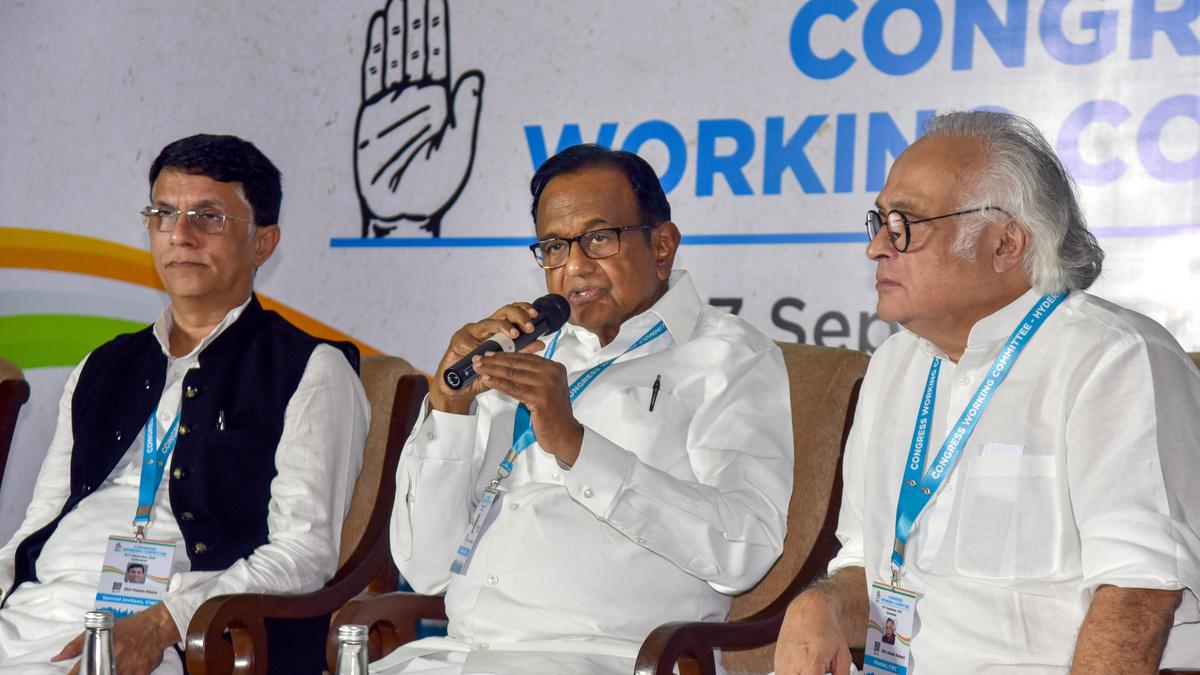
Congress’ Chidambaram plays down T.S. Singh Deo’s ‘praise’ for Modi as ‘protocol’
The Hindu
Congress leaders downplay TS Singh Deo's remarks praising PM Modi. Chidambaram says remarks were protocol, not praise. Ramesh adds PM abused Congress from govt functions. Singh Deo clarifies remarks were out of hospitality, not politics. PM Modi acknowledged remarks with folded hands.
The Congress’ national leadership on Saturday tried to play down Chhattisgarh Deputy Chief Minister and senior party leader T.S. Singh Deo’s comments praising Prime Minister Narendra Modi earlier this week.
Senior Congress leader and former Union Minister P. Chidambaram, who is attending the party’s ongoing Congress Working Committee meeting in Hyderabad, said that Mr. Singh Deo’s remarks were not in praise but as per protocol, and that he had not brought up any divisive issue or made a political statement. Jairam Ramesh, a fellow Congress veteran, added that this was “unlike the Prime Minister who abused the Congress from every government function”.
At an event in Raigarh during which Mr. Modi announced several development initiatives for Chhattisgarh on Thursday, Mr. Singh Deo, who was representing the State government, had thanked him for giving a “lot of things to Chhattisgarh”.
“We have always worked under the guidance of the Central government, and I do not want to miss out on saying that, in my experience, I did not feel any discrimination… In the State, when we asked for something from the Central government, they… never denied help. And I believe that going forward, the State and Centre will work together in all the fields to take our country and State forward,” Mr. Singh Deo added, even as Mr. Modi acknowledged the remarks with folded hands.
The BJP’s social media handles shared the video of Mr. Singh Deo and Mr. Modi, with a captioned question directed at Chief Minister Bhupesh Baghel: “When will you apologize to the people of Chhattisgarh for misleading them about the Central government?”
While in the backdrop lies the constant tussle between the Baghel government and the Centre over a host of issues, after the controversy blew up, Mr. Singh Deo clarified that there had always been a tradition of hospitality in the State and the entire country.
“At an official forum, some things were said keeping in mind the dignity of the Prime Minister. I did not want to get involved in the politics of allegations and counter-allegations through the platform. And, my statement was only related to the demands of my department,” his post on X (formerly Twitter) further read.













